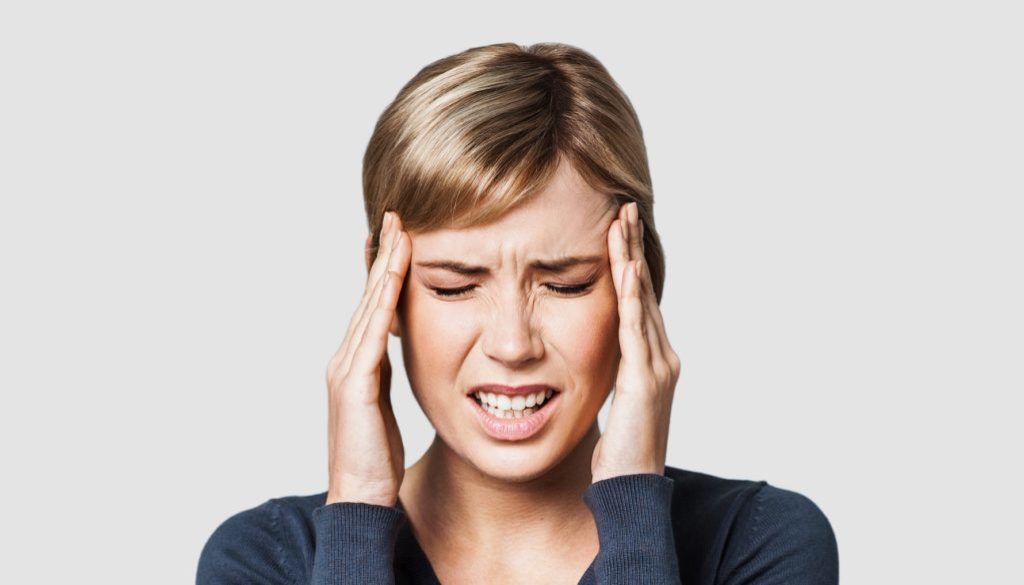
04 Oct What type of headache do you have? How to treat and avoid headaches
Headaches can strike at any time, coming on suddenly and sometimes stopping you in your tracks. Most of us will suffer from a headache at some point in our lives. But what type of headache do you have and if you’re a frequent sufferer, what can you do to help prevent them?
Firstly, there are two categories of headache – primary and secondary. A primary headache is symptoms caused by the headache itself whereas a secondary headache is bought on by other underlying factors. Here is the lowdown on the three most common types of primary headache:
TENSION HEADACHE
As the name implies they feel like a tight band has been wrapped around your head. This is the most frequent type of headache and should not stop you from carrying out your normal day to day activities. If you are prone to tension headaches, keep hydrated. Treating a tension headache can be done with every day painkillers such as paracetamol or ibuprofen.
MIGRAINE
A migraine tends to be on one side of the head and induces an intense throbbing sensation. Being struck down by a migraine is not only extremely painful, it can also be accompanied by nausea, vomiting and sensitivity to sound and light. Aura migraines will start with visual disturbances such as flashing lights, or spots in your vision. According to the Migraine Trust 1 in 7 people suffer from migraines and the World Health Organisation states that two women to every man suffer from migraines. They can last for hours to days and, beyond medicinal control, the only relief is quiet, dark and sleep.
CLUSTER HEADACHE
Cluster headaches are excruciating attacks of pain in one side of the head, often felt around the eye. These attacks can usually last from fifteen minutes to three hours, are less common and normally affect people in their 30s and 40s. Normally there is a pattern to their arrival. Make sure you contact a doctor to look at treatment options as they can seriously affect your day to day life.
WHEN TO SEE A DOCTOR?
Often the cause of a headache is very obvious. It could be that you have missed a meal or not had enough sleep or you are dehydrated from lack of fluid and if you eat something, have a sleep or drink something those symptoms will just go away. However, if you experience headaches consistently such as once a week or more you should see a doctor.
QUESTIONS TO HELP WORK OUT IF YOU NEED TO SEE A DOCTOR.
1) Are your headaches more frequent or more severe than usual?
2) Do your headaches worsen or don’t improve with the proper use of over-the-counter medications?
3) Are your headaches preventing you from performing normal activities, such as working or sleeping?
4) Are your headaches caused by coughing, exercise, or sexual activity?
EASY TIPS TO HELP PREVENT HEADACHES
- Maintain good posture, and move around during the day. Make sure your neck isn’t remaining stiff and that you’re moving it around if you’re doing desk-based work. Also, take your eyes away from the computer every so often to avoid eyestrain.
- Stay consistent. Keep a regular schedule, and don’t greatly vary your diet or your waking, sleeping, and exercise routines.
- Get an appropriate amount of sleep. Either too much or too little shuteye can leave your head pounding, so make sure you get a steady eight hours each night.
- Stick to a healthy diet and exercise regime. Healthy foods and regular exercise help ward off headaches. Avoid skipping meals, and have a small, healthy snack between meals so that you don’t get too hungry.
- Drink water. Dehydration can lead to headaches, so drink plenty of water throughout the day.
- Manage stress. Stress can build up and cause your head to pound, so find ways to deal with it. Take up a hobby, exercise, try yoga, and do some deep breathing when you feel stress creeping in.FOODS TO HELP HEADACHESWhen dealing with an aching head, it has become so easy to pop some pills. If you’re trying to steer clear of pain relievers, some of the best help can come from the produce aisle.Potato: Don’t reach for the fries; go for a baked potato instead. Foods high in potassium have proven to help alleviate bad headaches, and a baked potato with its skin offers up to a whopping 600 mg of potassium.
Bananas: ‘Have a Banana’ The dynamic duo of potassium and magnesium come to the rescue in one tasty piece of fruit. Magnesium’s calming effects are a huge help when trying to alleviate an achy head.
Watermelon: Often the cause of a headache can be dehydration. This water rich fruit can give you a huge boost and also serves as a solid source of potassium and magnesium.
Pineapple: Fresh pineapple can also help soothe your headache woes. The natural enzyme bromelain has been linked for centuries as a form of natural pain relief. It also boasts anti-inflammatory properties that can help get your head right as well.
Cucumber: can help cut dehydration out of the picture. Composed of 95% water, the highly hydrating cucumber is a perfect option for a fresh, headache-fighting snack.
Health at Hand is a new app launching soon that will enable its users to see an expert doctor anytime anywhere via video consultation.
9 out of 10 visits to the doctor could be successfully conducted via video.
#telehealthisthefuture #doctorinyourpocket #feelbettertoday
Be the first to read about our launch by filling in your email address below:


